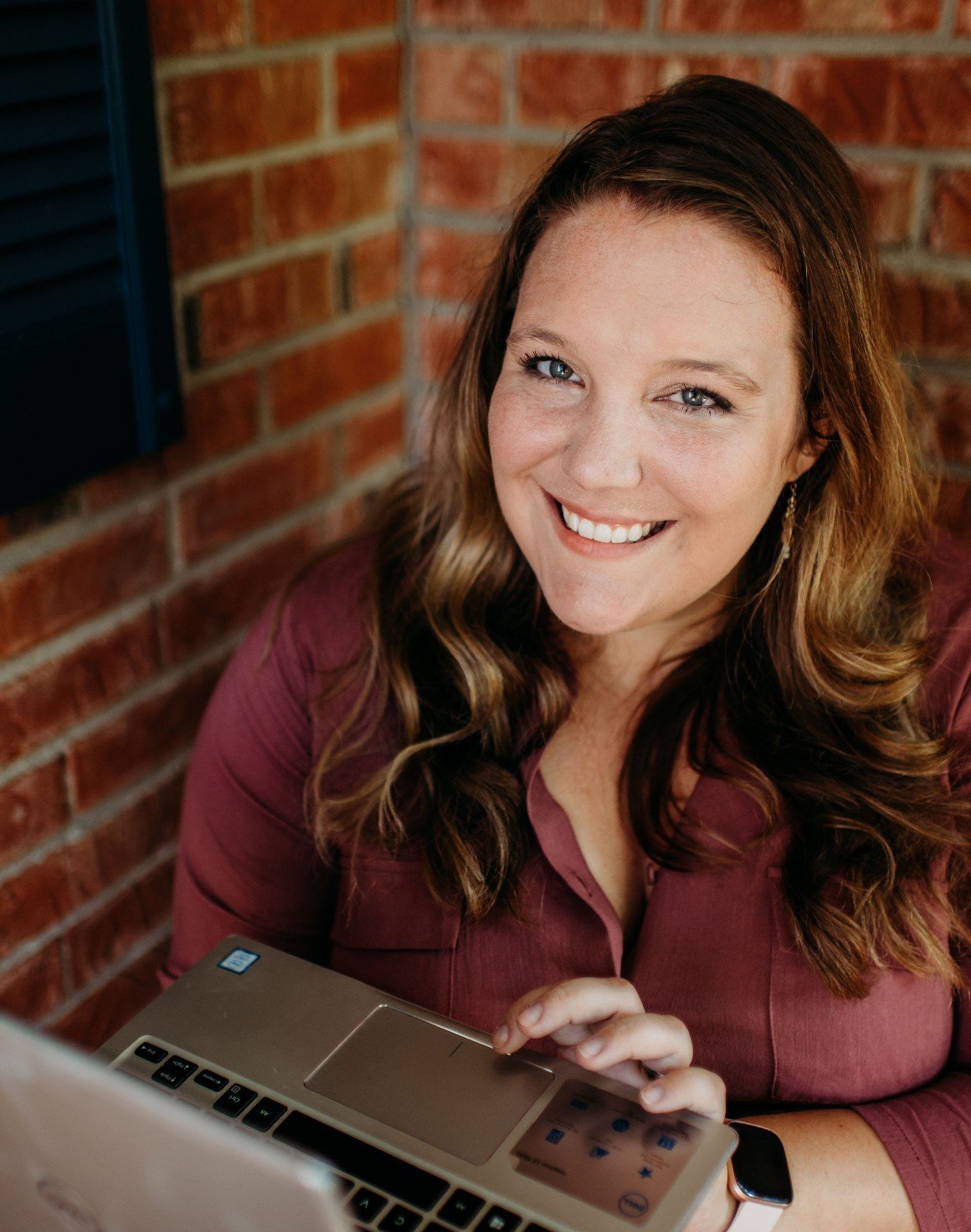
Therapy for Relationships
While we only offer individual counseling, we can still do a lot to help you with your relationships.
When Relationships Feel Hard
Maybe you're reading this because another relationship with someone you really liked just ended, or perhaps you're worried it's ending. You feel confused about what went wrong because you thought you had such great chemistry. And the hardest part? There were good moments—times when he was loving, attentive, and made you feel like you were the only person in the world. Which makes you wonder: were you just being too sensitive? Expecting too much?
Or maybe you're reading this because you keep ending up in relationships that are toxic or don't work. You tolerate things you know you shouldn't. Maybe he cheated on you, and you forgave him and tried to just move on. You tell yourself the next guy will be different, but at the end of the day it seems like you're always dating the same type of guy.
The worst part? When the relationship ends, you feel crushed and terrible about yourself. You tell yourself there's something wrong with you, that you're the reason the relationship didn't work out. Maybe you've reached the point where you're ready to just give up on dating and relationships in Cincinnati altogether.
Maybe You're Already in a Relationship—But Something Feels Off
Perhaps your situation is different. Maybe you're already in a relationship—maybe he's even a pretty good guy—but it doesn't feel as good as you expected. You feel heavy. Your mind is constantly filled with thoughts about whether he truly loves you, and you can't figure out why you don't feel confident in your relationship.
Your stomach drops every time you see he's been online but hasn't responded to your text. It's been three hours now... or was it two? Should you send another message? Your chest feels tight when he seems distant or his tone feels off, and you can't focus on anything else until you figure out what you did wrong. You lie awake at night replaying conversations, trying to decode what he really meant when he said that thing earlier.
The Exhausting Cycle of Relationship Anxiety
You find yourself overanalyzing every text, every comment, every facial expression—trying to figure out how he really feels about you. The mental gymnastics are exhausting. You wonder if he's cheating, if he's looking for someone "better," if he's losing interest. You have a constant need for reassurance, but even when he gives it to you, it doesn't seem to quiet the anxiety for long.
And honestly? You're tired. Tired of the constant relationship anxiety, tired of feeling like you're not enough, tired of the tightness in your chest and the knot in your stomach that won't go away. You can't remember the last time you felt calm and steady in a relationship.
If you're a woman in the Cincinnati area experiencing these patterns, you're not alone—and more importantly, relationship anxiety therapy can help.
Recent Posts
Interested in therapy for Relationships? Send us a message!
Attachment Anxiety is Incredibly Common and Treatable
Everyone has moments of insecurity in relationships, but anxious attachment and relationship anxiety are different. They're persistent, exhausting patterns that affect how you think, feel, and show up in your relationships every day. It's the difference between occasionally wondering "why do I feel anxious in my relationship" versus constantly scanning for signs of rejection, between wanting reassurance sometimes versus needing it to feel okay.
Research shows that approximately 20% of adults have an anxious attachment style, and even more experience attachment issues in certain relationships or during stressful times. Relationship anxiety affects people across all backgrounds and life experiences—high achievers, successful professionals, deeply caring people who seem to "have it all together" on the outside.
Here's what we see in our therapy practice in Cincinnati every single week:
Women in their twenties and early thirties who are smart, accomplished, and deeply caring—but who are absolutely exhausted by their relationships. They look around and everyone else seems to have it figured out. They scroll through Instagram seeing couples who seem so secure and effortless, and they wonder what's wrong with them.
Many have stopped confiding in friends about what's really happening. They worry others will think they're being dramatic or "too much." Or their friends keep saying "just leave him," and they can't explain why it's not that simple. So they keep it to themselves, which only deepens the isolation and the belief that something is fundamentally broken.
And they've tried to fix it on their own. They've read the self-help TikTok’s about playing it cool and not being clingy. They've promised themselves they'll stop checking his social media. They've tried to logic their way out of the anxiety. But nothing changes how they actually feel inside. The tightness returns. The overthinking starts again. These feelings keep showing up—and that makes them feel even more alone.
The good news? Attachment patterns can change with the right therapy. As attachment-based therapists in Cincinnati, Ohio, we use evidence-based approaches including attachment-based therapy, EMDR therapy, and Internal Family Systems, to help women develop more secure attachment styles. With specialized attachment therapy, you can finally experience the calm, confident relationships you deserve.
What is Attachment?
Attachment refers to how securely we connect with others, how safe we feel being vulnerable, how we interpret affection, and how we respond to closeness or distance.
If you often worry about being abandoned, struggle to trust others, or find it hard to feel emotionally close, your attachment style may be influencing your relationships more than you realize.
Where Does Anxious Attachment Come From?
These insecure attachment patterns can develop from early childhood experiences, past relationship trauma, or even from one significant relationship that left you questioning your worth. Often, people manage these symptoms for months or years before realizing how much they're struggling—wondering "am I too needy?" or "why do I always date the same type of guy?" The constant analyzing, the stomach-dropping anxiety when he doesn't text, the tightness in your chest when he seems distant—these feelings can build gradually until they become what your used to. You might not even remember what it feels like to be calm in a relationship.
What are Attachment Styles?
Attachment styles are long-standing patterns in how we bond with people, shaped by our early relationships with caregivers and reinforced by our later romantic experiences.
Although we can change with awareness and therapy, these attachment styles often guide how we love, react, and connect.
There are four main types:
-
People with a secure attachment style generally find relationships fulfilling and stable. They trust others, feel comfortable being both independent and connected, and can manage conflict in healthy ways.
This style forms when children grow up in environments where their needs — physical and emotional — are consistently met, and they feel both safe and free to explore.
Signs of a Secure Attachment
Trusting and emotionally available
Comfortable with closeness and independence
Able to manage conflict calmly
High self-esteem and positive outlook
Feels confident both alone and with others
-
If you often need reassurance, worry about being abandoned, or feel “too much” in relationships, you may have an anxious attachment style.
This typically develops when caregivers were inconsistent — sometimes loving, sometimes unavailable. As adults, this can lead to a fear of rejection and a tendency to cling to partners or overthink every interaction.
Signs of Anxious Attachment
Feeling anxious when your partner is distant
Craving closeness yet fearing rejection
Worrying about being unlovable
Needing constant reassurance
Feeling jealous or insecure in relationships
Therapy helps by teaching you to self-soothe, build trust, and feel secure even when your partner isn’t immediately available.
-
People with an avoidant attachment style often pride themselves on independence — but underneath, there’s usually a fear of relying on or needing others.
This style can form when caregivers were emotionally distant or dismissive of feelings. As adults, avoidant individuals may keep partners at arm’s length to avoid being hurt or controlled.
Signs of Avoidant Attachment
Feeling uncomfortable with closeness or vulnerability
Avoiding emotional or physical intimacy
Believing you “don’t need” relationships
Struggling to trust or depend on others
Feeling uneasy expressing emotions
Therapy helps you reconnect with your emotional self, learn to trust others safely, and embrace intimacy without fear of losing autonomy.
-
Disorganized attachment often develops in chaotic or unsafe early environments — where love and fear were intertwined.
As an adult, this can look like wanting closeness yet pushing it away, or swinging between emotional withdrawal and intense attachment.
Signs of Disorganized Attachment
Emotional highs and lows in relationships
Fear of both abandonment and intimacy
Difficulty trusting self or others
Struggles with setting boundaries
Engaging in risky or self-sabotaging behaviors
Through attachment-based therapy, you can learn emotional regulation, healthy boundaries, and a new way of relating that feels safe and stable.
How Attachment-Based Therapy Can Help
If you're tired of the constant relationship anxiety, the overthinking, and the feeling that you'll never have a calm, secure relationship—attachment-based therapy in Cincinnati can help you break these patterns. Unlike traditional talk therapy that might just process your feelings week after week, attachment therapy actually rewires the way your nervous system responds in relationships. It works by creating a safe, trusting relationship with your therapist for relationship anxiety—a relationship that becomes the foundation for healing. This therapeutic relationship itself becomes a "corrective experience" where you learn what secure attachment actually feels like, often for the first time in your life.
In our individual therapy sessions with our attachment therapists, you'll explore how your early experiences shaped your current relationship patterns, but more importantly, you'll develop new ways of relating that feel secure and sustainable. You'll understand why your stomach drops when he doesn't text back, why you overanalyze every interaction, and why you keep choosing emotionally unavailable partners. But understanding alone isn't enough—attachment-based therapy helps you actually change these patterns. Through the consistent, attuned presence of your therapist, your nervous system learns that it's safe to trust, safe to be vulnerable, and safe to need support without fear of abandonment or rejection.
How You Can Feel Different
Women who work through their insecure attachment patterns with therapy for fear of abandonment find that they wake up without that familiar knot of anxiety in their stomach. They notice their partner hasn't texted back in a few hours and instead of spiraling into panic, they think "Oh, they must be busy" and go about their day feeling calm and grounded. They stop always dating the same type of guy because their nervous system finally feels safe with someone who's consistent and trustworthy. They communicate their needs without feeling "too needy," and they trust that a healthy partner will want to meet those needs. The constant need for reassurance fades, and relationships stop feeling like an emotional rollercoaster and start feeling like a source of support and joy.
Why Choose Therapy Cincinnati for Attachment Issues
Our group practice specializes in attachment therapy for women in Cincinnati who are struggling with relationship anxiety, fear of abandonment, and insecure attachment patterns. Our therapists in Cincinnati are trained in attachment-based approaches and understand the unique challenges that young women face in today's dating landscape—from the anxiety of waiting for texts to the confusion of modern relationships.
When you heal your attachment wounds with our women's therapy Cincinnati practice, you'll naturally start recognizing red flags earlier and feeling attracted to people who are actually emotionally available. You'll break the pattern of "always dating the same type of guy" because your nervous system will finally feel safe with someone who's consistent and trustworthy.
We don't just talk about your anxiety—we give you practical tools to manage it. When relationship stress comes up (because occasional anxiety is normal), you'll know how to self-soothe, how to reality-check your anxious thoughts, and how to communicate with your partner without pushing them away. We provide individual therapy for relationship issues because we've found that healing attachment wounds works best when you first do your own work. This isn't about fixing your relationship with someone else—it's about healing your relationship with yourself first. Once you develop a more secure attachment style, your relationships naturally become healthier.
Common Questions About Attachment Therapy
-
No. We offer individual therapy only. Many relationship challenges begin within us — by healing your own attachment wounds first, you’ll be better equipped to build and sustain a healthy partnership later.
-
If you feel anxious about closeness, struggle with trust, or keep repeating painful relationship patterns, attachment-based therapy may be exactly what you need. If this page resonates with you, that’s a strong sign you could benefit.
-
Healing attachment patterns takes time and patience. Together, we’ll outline your history, identify goals, and move through a process that fits your needs and pace. Progress is steady, measurable, and empowering.
-
You won’t surprise us. Many people with attachment wounds share the same private fears — “I’m too much,” “I’m unlovable,” “Everyone leaves me.” Therapy helps you replace shame with compassion and self-understanding.
-
Attachment-based therapy requires specialized training. Because it works with your deepest patterns of trust and connection, it’s essential to work with someone experienced in trauma and attachment science.
At Therapy Cincinnati, our clinicians are highly trained in this work — and dedicated to helping you heal safely.
Begin Building Healthier Relationships
You don't have to keep living this way. If you're a woman who's ready to stop repeating the same relationship patterns and start building the secure, fulfilling connections you deserve, we're here to help. Take the first step toward developing a more secure attachment style.
Schedule a free 15-minute consultation with one of our attachment-focused therapists in Cincinnati, and let's talk about how we can help you finally experience relationships without the constant anxiety.
Our therapists that specialize in relationships
-

Sheldon Reisman
LISW-S
-

Kelsey Harlow
LSW
-

Dorothy Rees
LPC
-

Sarah Case
LISW-S





